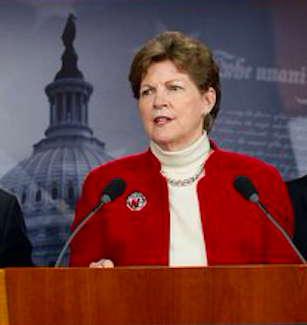The House Armed Service Committee voted last Wednesday to force women to register for the military draft. Rep. Chrissy Houlahan (D-Penns.) authored the amendment, and it was approved 35-24as part of a larger defense policy bill.
In doing so, they were following the lead of another Democratic woman, New Hampshire’s Sen. Jeanne Shaheen. She backed the same policy in the Senate Armed Services Committee in July. The committee added it to the 2022 National Defense Authorization Act, which passed by a vote of 23-3. Five Republicans on the committee reportedly voted against the specific proposal to force women to register for the draft. Democrats were unanimous in their support.
While there hasn’t been a military draft in over 40 years, the law is on the books that men are required to be drafted should the situation call for it. Rep. Michael Waltz (R-Fla.), who also supported the inclusion of women in the draft, believes we need a bigger pool and he wants everyone to jump in.
Beyond the technicalities, the bottom line is the move to get women included in the draft is one step closer to becoming a reality. The fact that it has gotten this far is a testament to the changing view of women and the parameters of gender roles in modern-day society, as well as the new frontier for feminism.
There are several schools of thought. While Republicans have been the most vocal against drafting women, many Republican lawmakers have actually crossed over to vote with Shaheen and the Democrats. Waltz’s reasoning that we need everyone on board makes sense if we look at it from a macro perspective.
This vote perfectly tips the hand of a society that has minimized not only the strengths of males in general but also females. Generalities are ok and we can still recognize outliers. But the bottom line is men are still geared toward certain skill sets and interests, and so are women.
We are better off realizing that men have their strengths and weaknesses, and the same of women. I wouldn’t say, apples are better than oranges, they’re just different. Therefore, it is safe to say that men are much suited better to armed combat than women. Women serve in the military now as volunteers, but doing a catch-all draft and ignoring gender may not be the most efficient step.
And the military is about efficiency. A mandatory draft will now include a whole population of women, who probably will have zero interest or skill set to go out in the field. That would be disastrous.
Now is the time to watch self-described feminists. How will they react when this becomes a reality? Will it be a celebration that women are now “equal” to men, a huge step in balancing the scales? Or will there be a backlash because women have no place in the field?
One thing is true: you can’t have it both ways. If anything, I would love to see this go further so we can have an honest discussion about our first-world problems, when we can debate general gender roles in the greater society in the safety of a college academic setting, or in the spotless halls in Washington D.C.
Given the recent events in Afghanistan, will we have the luxury of time to assess the wisdom of a gender-blind draft, given foreign threats and limited time to react? Some common sense may be needed to save women’s lives.


